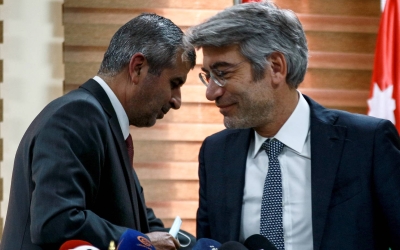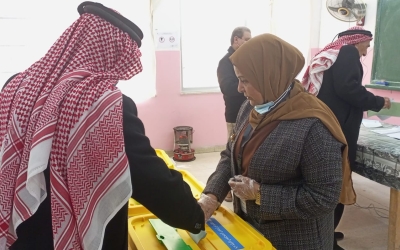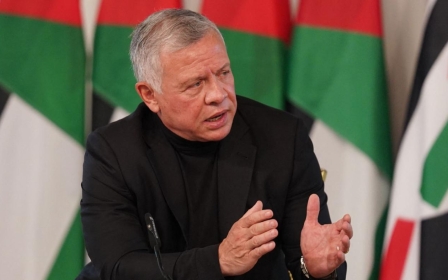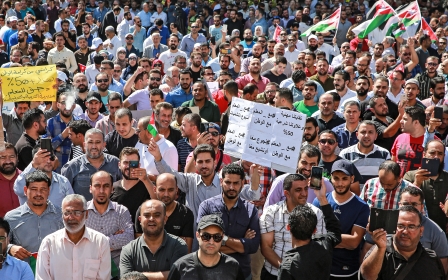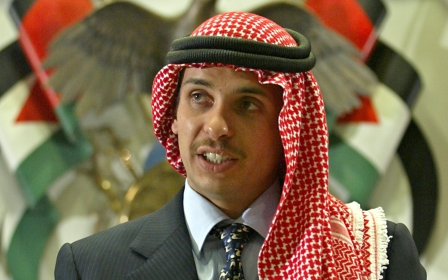Jordan faces a difficult 'balancing act' in Russia-Ukraine war, experts say
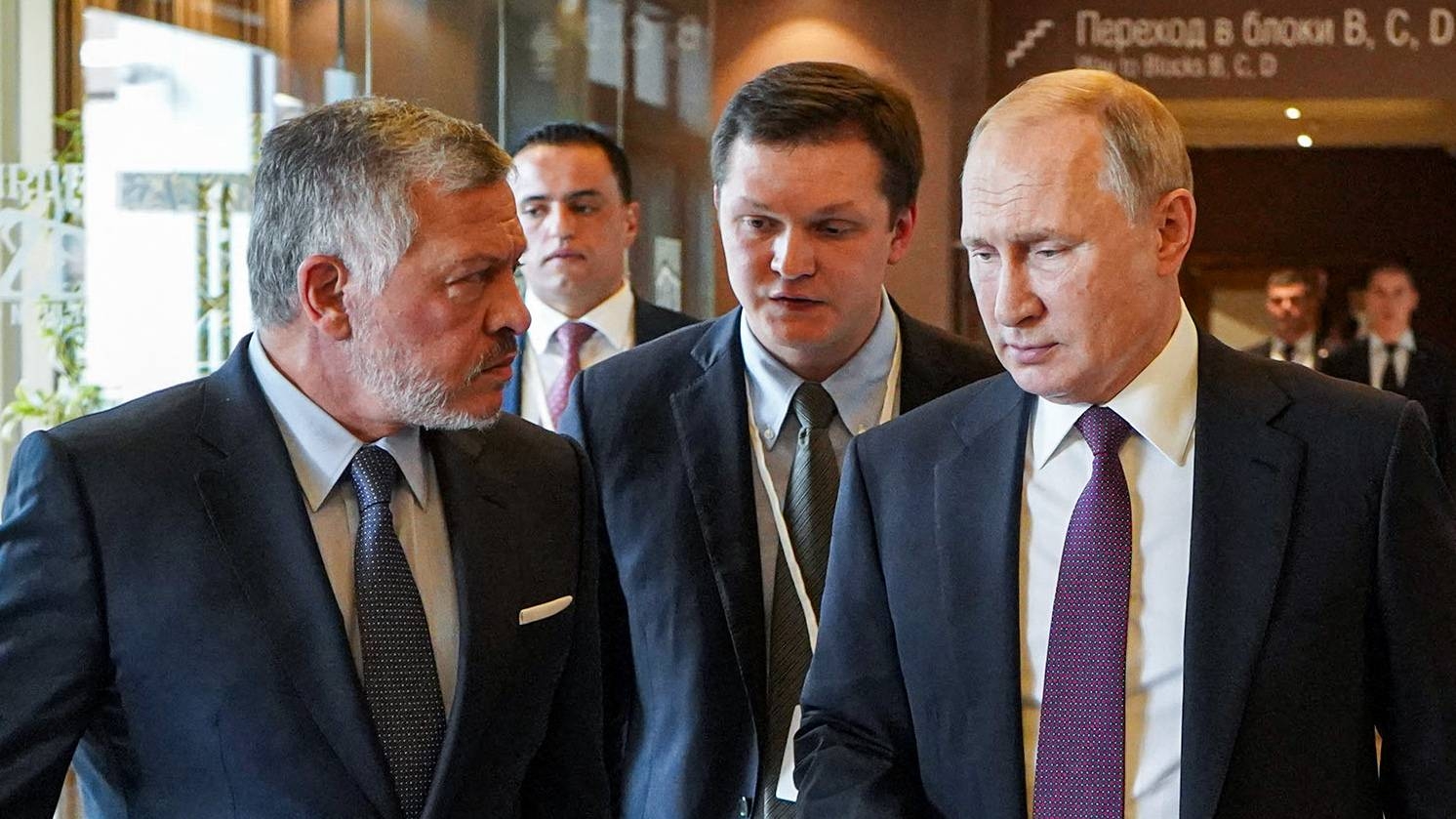
Russia's invasion of Ukraine has left governments across the Middle East and North Africa in a strategic bind, with several capitals reticent to condemn Moscow, on which many rely heavily for wheat and weapons.
When the first United Nations Security Council resolution against the invasion of Ukraine was proposed on 25 February, several regional powerhouses were slow off the mark in formulating their positions.
The United Arab Emirates, the only country in the region that currently holds a UN Security Council seat, abstained from voting, only to later issue public statements that some interpreted as considering Russia's stated grievances legitimate.
Three days later, the Arab League, a body comprising 22 Arab states, issued a statement which failed to condemn Russia's invasion and offered little support to Ukrainians.
For Jordan, neutrality has long been a pillar of its foreign policy.
New MEE newsletter: Jerusalem Dispatch
Sign up to get the latest insights and analysis on Israel-Palestine, alongside Turkey Unpacked and other MEE newsletters
The kingdom joined the majority of Arab countries in condemning Russia's invasion via the UN resolution, but like their regional partners, stuck to neutral language, excluding even a mention of Russia in its statement.
Jordan's condemnation of Russia "wasn't that forceful", said Merissa Khurma, the Wilson Center's Middle East Programme director and a former Information Bureau director at Amman's embassy in Washington.
"Akin to other countries in the region, Jordan is compelled to try to balance its relations," she said. "Russia is right on the border."
'I think Jordan cannot do anything but follow the American vision'
- Amer Sabaileh, Jordanian political analyst
Russia has played a key role in de-escalation agreements in southern Syria, leaving Moscow a strategic partner for Jordan in securing its borders.
In August, Jordan's King Abdullah met Russian President Vladimir Putin and lauded his "stabilising role in Syria". The following months saw the reopening of the Syria-Jordan border crossing and the king's first phone call with Syrian President Bashar al-Assad in more than a decade.
Jordan, like the majority of its Arab neighbours, has so far been cautious to not pick sides, instead urging the "respecting [of] international provisions and the UN charter".
In Russia's recently published list of "unfriendly" countries, Middle Eastern states were not mentioned.
"Among some other Arab countries, we feel trapped in this conflict," said Oraib al-Rantawi, director of the Amman-based Al Quds Centre for Political Studies. "We cannot go far from the United States, our strongest and strategic ally, but meanwhile, we cannot risk our relationship with Russia."
But at perhaps the most fraught moment in US-Russian relations since the Cuban missile crisis, Western pressure may push Arab states to choose a side, said Gerald Feierstein, senior vice-president of the Washington-based Middle East Institute and a former US ambassador to Yemen.
"The US is looking very carefully at which governments are taking a clear stance and which ones aren't," Feierstein told MEE. "This is a 'with us or against us' moment."
Jordan is one of the largest recipients of US foreign aid, and Amman's position on the conflict in Ukraine seems clear. "It's not an easy issue for a country like Jordan," Jordanian political analyst Amer Sabaileh told MEE. "I think Jordan cannot do anything but follow the American vision."
Public opinion
While Jordan's official position on the invasion may have to mimic the US stance, Jordanian public opinion does not paint Putin with the same antagonism as exhibited in the West.
"You feel that there is a general sympathy towards support for Russia," Rantawi said.
In an October public opinion survey, 80 percent of Jordanian respondents said they would prefer to remain neutral if there were a conflict between the US and Russia. Some 65 percent of respondents said they wanted Russia to play a "much larger role" or "a larger role to some extent" in the region.
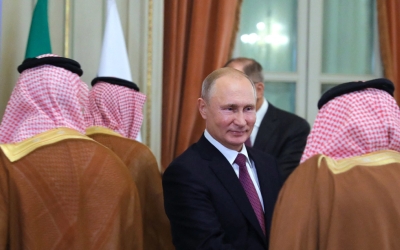
When asked to name the country "most to blame for instability and violence in the region", the US ranked second, after Israel and before Iran. Only one percent of respondents listed Russia as the source of Middle East instability.
"There is a perception across the region that the US is less engaged than it used to be," noted Khurma. She referred to the US withdrawal from Afghanistan last autumn, which "really raised concerns about the US".
The region continues to provide a stage in "a theatre for Cold War rivalry", she said, adding that this has helped Russia to continue asserting its influence.
In Jordan, there is a particularly negative view towards the US handling of what the poll described as "the Arab-Israeli conflict". The overwhelming majority of respondents, 83 percent, said they were "very unsatisfied" with Washington's role.
"We have interests with Russia when it comes to the peace process," Rantawi noted. During the administration of US President Donald Trump, Jordan had a "better understanding" with Russia over the Israeli occupation of Palestinian territory, he added.
"As the world order is reshuffling, Middle Eastern countries may not want to put all their eggs into the American basket anymore," said Edmund Ratka, an analyst from the Amman-based Konrad-Adenauer-Stiftung political foundation.
Normalisation with Assad
In autumn, King Abdullah seemed to be on track towards normalising relations with Assad. Within months of the king's meeting with US President Joe Biden in July, he also visited Moscow, then reopened the Jordan-Syria border and broke his decade-long silence with the Assad government.
"We didn't get the green light from the US to move forward in our relationship with Syria," said Rantawi. "But we didn't face a red card. It was a yellow card - 'go, but be careful'."
But opening relations with Syria "cannot be facilitated without the Russians", Rantawi said.
Jordan has witnessed a "dramatic increase" in drug trafficking attempts at the border, and fears a growing Iranian presence in Syria's southern territories - both threats requiring the kingdom's security cooperation with Russia.
In reference to a US-brokered energy deal in which Jordan will transfer electricity through Syria to Lebanon, Rantawi said: "Without having the Russians facilitating this process - paving the way in Daraa [southern Syria] to provide a secure environment for the energy transfer - we cannot go for it."
In December, the Jordanian-Syrian Free Zone was reopened to revilitise the once-flourishing commercial partnership between the neighbours.
Trade between Jordan and Syria once exceeded $600m annually, Nael Kabariti, chairman of the Jordan Chamber of Commerce, told MEE. After more than seven years of border closures, it is now less than $40m.
"Amman is the main gate for Damascus' reconstruction," Kabariti was quoted as saying in Jordanian state media.
However, Kabariti also referred to the limits placed on Jordan's trade with Syria by the US-imposed Caesar sanctions. "Everyone is careful not to deal with Syria. Anyone with a successful company will not take their chances in Syria," he told MEE.
Despite Jordan's requests for Caesar sanctions waivers, the US remains steadfast in its position.
"At the time when Assad is still murdering his own citizens, carrying out a full-scale war against his fellow Syrians, I think our [US] perspective would have to be that there are higher priorities than trade," Feierstein said.
"Easing the sanctions for Jordan would help Jordanian businessmen and the economy," noted Khurma, "But from the US perspective, if you make one exception, how effective are your sanctions?"
Coming weeks
As Russia's invasion intensifies, and its support base grows in Syria, Jordan's balancing act between Putin and the US may cease to hold. Syria seems to be lining up "very firmly" on the Russian side, said Feierstein.
Russia has reportedly drafted 40,000 Syrians to deploy in Ukraine in support of its invasion, according to a UK-based activist group.
Government-held areas in Syria are covered in propaganda in support of Putin and have witnessed multiple rallies "in solidarity with Russia and its people rejecting US-Western policies aimed at undermining Russia’s security and stability", according to Russian state media.
"As Syrians become more deeply embedded in Russian policies and their agressions, I think that we [the US] would see any kind of move normalising relations with Syria as more problematic than it was before," Feierstein said.
On Saturday, the UAE hosted Assad on his first visit to another Arab nation in 11 years. The trip, coming amid a trend of Arab countries beginning to re-engage with the Syrian president, alarmed the US and much of the international community.
"If things get worse, and there is a serious escalation, Jordan will have to respond to its allies," said Sabaileh, the Jordanian political analyst.
Israel has so far been the only state in the region to publicly announce any sort of interest in joining the Western world's sanctions on Russia. "Israel will not be a route to bypass sanctions imposed on Russia by the United States and other western countries," Israel’s foreign minister said in Slovakia on Monday.
Feierstein hopes Jordan will side with the US: "It's in their interest politically and economically to take a strong stance."
Sabaileh, meanwhile, said there was a risk for the conflict in Ukraine to escalate into Syria - and even Jordan: "I don't see it as a taboo or a red line any more for Russia to trouble the Americans in their strategic places, like in Jordan."
"The Americans are doing exactly this, troubling Russia in its strategic places," he added. "The more pressure you put, the higher possibility that they try to escalate more elsewhere to push a kind of balance."
As Russia becomes weakened by the international community's sanctions, Iran may strengthen its hold across Syria, Khurma said. The increasing Iranian threat at Jordan's borders presents another motivation for the kingdom to sustain its relationship with Russia, she added: "[It is] important to maintain dialogue when things are not going well."
"Even at the peak of the Syrian crisis, we could have some kind of understanding with Russia for the benefit of Jordan's security," Sabaileh said, noting that Jordan hoped to preserve the relationship to maintain stability amid another global crisis.
"It is not easy just to raise the sanction card and to put more and more pressure without thinking deeply about the consequences," Rantawi said.
"[The US] really needs to think deeply about the consequences, not only for your own enemies, but also for your friends and allies as well. This may turn out to be a disaster for the whole region."
Middle East Eye delivers independent and unrivalled coverage and analysis of the Middle East, North Africa and beyond. To learn more about republishing this content and the associated fees, please fill out this form. More about MEE can be found here.


